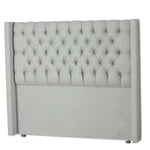Caffeine can be found in many different drinks and foods, from tea, coffee, chocolate, soft drinks and even some medication. The amount found in these products varies in quantity.
Over the last 10 years the coffee culture has grown, becoming an important part of daily life and our routine. Caffeine promotes alertness by inhibiting chemicals in our
brain that promote sleep. Caffeine provokes your body to produce two anti- sleep hormones, called Adrenaline and Cortisol. It’s absorbed in to our blood stream and can reach peak levels between 30-70 minutes after consumption. It’s an extreme nervous system stimulant and its effects can last between 3-7 hours. Depending on the individual it can take up to 24 hours before it fully leaves our body.
Regularly use can lead to a dependency .What this means that if you suddenly stop, you may suffer from headaches, tiredness and anxiety.
Our daily intake of coffee is increasing and this is now becoming one of the biggest causes of sleep disruption.. Understanding and controlling your caffeine intake use is an extremely important part of Sleep Hygiene and your search for a better nights sleep.
Caffeine makes it harder for us to fall asleep but we may also sleep lighter and may wake more often during the night.
Here are some useful tips to help prevent coffee from upsetting a great night’s sleep.
1. Set a coffee Curfew. For most people a 2pm cut off is a great time. If you are more sensitive try earlier.
2. Try using a smaller mug.
3. Ideally 2 cups a day.
4. Try using decaf.
5. If you drink more and you need to cut back try using
Earl grey Tea as a substitute.
#Becausesleepmatters








